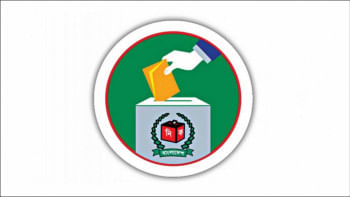TRASH CITY - from Beirut to Dhaka
You Stink! That's the not-so-subtle slogan being used by protesters in Lebanon to demonstrate against the piles upon piles of garbage taking over the capital city of Beirut. On July 17 the main landfill was closed which caused garbage to accumulate since officials failed to agree on an alternative site. Trash kept growing in other parts of the country in the following weeks as the cabinet faced an impasse on the issue due to political differences.
For us Dhaka residents, the story of Lebanon's waste management crisis seems too close to home, especially when we read about Beirut residents complaining about a city that might as well be the one we live in.
"It's impossible to breathe; it's really disgusting, especially as these are the hottest days of the year," states 30-year-old Karim of Gemayze, Lebanon.
"You can't sit outside any more, because the smell wafts around you, and wherever you walk you're tripping over garbage," says another unhappy Lebanese resident.
While it's not clear if Beirut is now drowning in more tonnes of rubbish than Dhaka is (although I doubt it), rest assured that the severity of the waste disposal disaster Bangladesh is facing increases by the day. The entire city of Dhaka smells of filth. The story of Dhaka's dirty tragedy is one that affects everyone from the rich to the poor, although not in equal measure. There's garbage everywhere—main roads, houses, schools, parks, lakes, hospitals, clinics—and with trash bins overflowing on the streets, traffic pathways are becoming worse than they've ever been.
Perhaps residents of Beirut can learn a thing or two about patience from inhabitants of Dhaka since the latter seem to be taking the waste crisis pretty lightly in what is one of the most polluted cities in the world. People here have more pressing things to worry about—for example, how to get to work (or anywhere) on time without getting stuck in traffic that makes you want to pull your hair out. But even then, the awful sight of accumulating garbage and the putrid smell of air doesn't escape you unless you're within the confines of four walls. Unlike the people of Lebanon who are taking to their rubbish strewn streets to demand the removal of mountains of garbage, we in Bangladesh have resigned ourselves to the fate of living indefinitely in revoltingly filthy conditions.
Waste generation in Bangladesh is projected to reach above 47,000 tonnes per day by 2025. The rate of waste collection in Dhaka alone is a mere 37 percent, which means that 63 percent of waste is improperly disposed of posing a series of health and environmental risks in the process. General waste gets mixed up with medical and industrial waste, which is often rummaged through by garbage collectors and even stray dogs and cats. One may also see people foraging blackened drainage water hoping to score recyclable materials. But Dhaka residents will tell you that this is a common scenario in Bangladesh and hardly anything to be "frowned" upon.
Management of municipal solid waste (MSW) is of great concern in Bangladesh, especially in fast growing cities such as Dhaka and Chittagong. Currently an estimated 7000 tonnes of MSW is generated in Dhaka alone, of which only about 1500 tonnes are disposed of in landfills. The rest is locally dumped in arbitrary, open spaces or left completely unattended. Dhaka City Corporation (DCC) is in charge of MSW management in the corporation area while outside the DCC area local authorities are responsible for conducting waste management. Amongst all waste disposal options such as recycling, combustion and composting, landfill is the most favoured option because of its low-cost and the ease with which it can be implemented. But identifying a site suitable to dump municipal waste can be costly; regulations and public/political opposition can make the process more difficult. Siting of a sanitary landfill can be even more challenging because it additionally requires overcoming environmental hurdles, complying with various criteria, and national and local guidelines such that economic, health and social costs are minimised. Solid waste landfills also have an environmental impact as they later become unsuitable for developmental and agricultural use.
These challenges are exacerbated by the lack of proper infrastructure coupled with poor municipality governance which is largely to blame for Dhaka's waste management crisis. There is no organised method to collect and dispose of waste dumped all around the city streets. There are not enough trash cans and people simply don't care. The nonchalance with which inhabitants treat their surroundings as a garbage disposal area is eye-opening as to why Dhaka is turning into one huge trash city. But on a broader note, the real issue to think about is this: does Dhaka even have the capacity to manage such colossal amounts of waste generated by people living in a city that is 75 percent more dense than Hong Kong?
Apparently it took four to five days of garbage accumulation before the people of Beirut just couldn't take the stench permeating the air anymore. So here's a word of consolation to the residents of Beirut about their beloved city: Dhaka city harbours almost forty times the population as Beirut and Dhaka residents have been living with the suffocating smell of rubbish for as long as they can remember. So don't worry Beirut, you are not alone. Take solace in the fact that we stink much more than you ever will.
The writer is a journalist at The Daily Star.

 For all latest news, follow The Daily Star's Google News channel.
For all latest news, follow The Daily Star's Google News channel. 



Comments